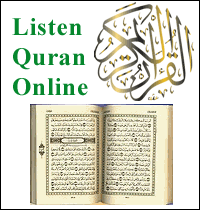In a truely Islamic society women have the following rights in Islam:
1. The right and duty to obtain education.
2. The right to have their own independent property.
3. The right to work to earn money if they need it or want it.
4. Equality of reward for equal deeds.
5. The right to express their opinion and be heard.
6. The right to provisions from the husband for all her needs and more.
7. The right to negotiate marriage terms of her choice.
8. The right to obtain divorce from her husband, even on the grounds that she simply can't stand him. (pls note that God deeply frowns upon divorce as a solution unless there is hardly any other alternative but it does not mean that men have more right to divorce their wives than women do.)
9. The right to keep all her own money (she is not responsible to maintain any relations).
10. The right to get sexual satisfaction from her husband.
11. custody of their children after divorce.
12. to refuse any marriage that does not please them
and more...
Sirajunisha Gulam thasthageer
December 22, 2009
December 16, 2009
Rights and Duties of Women
The Rights and Duties of Women in Islam
Issues in which men and women are treated alike or women are treated favorably.
This article discusses issues that carry little or no controversy.
1. Education
The Messenger of Allah (p.b.u.h.) once said: "Acquiring knowledge is compulsory for every Muslim. (At-Tabarani)
This narration applies equally to men and women. "Knowledge" in this context refers primarily to knowledge of the Holy Quran and Sunnah as no Muslim should be ignorant of his or her Faith, but it also covers other areas of general education, which can contribute to the welfare of civilization. It is precisely the ignorance about their religion among Muslims that has led to men oppressing women because they believe it is permitted, women not demanding their God-given rights because they are ignorant of them, and children growing up to perpetuate their parents' follies. Throughout Islamic history, men and women both earned respect as scholars and teachers of the Faith. The books of Rijal (Reporters of Hadith) contain the names of many prominent women, beginning with Aishah and Hafsah.
2. Worship
Both men and women are the slaves of Allah and have a duty to worship and obey Him. Men and women have to pray, fast, give charity, go on pilgrimage, refrain from adultery, avoid the prohibited, enjoin the good and forbid the evil, and so on. Because of women's roles as mothers, a role which does not end at a specific time but is a round the-clock career, they have been exempted from attending the Mosque for the five daily prayers or for Jumuah (Friday) prayer. Nevertheless, if they wish to attend the Mosque, no one has the right to stop them.
3. Charitable Acts
Men and women are both encouraged to give charity, and there is nothing to stop a woman giving charity from her husband's income. Aishah reported that the Messenger of Allah said: "A woman will receive reward (from Allah) even when she gives charity from her husband's earnings. The husband and the treasurer (who keeps the money on the husband's behalf) will also be rewarded, without the reward of any of them decreasing." Asmaa once said to the Prophet "O Messenger of Allah, I have nothing except what Zubair (her husband) brings home." The Prophet told her: ‘O Asmaa give in charity. Don't lock it lest your subsistence is locked.’"
4. The Right to Own Wealth and Property
A woman has the right to keep her property or wealth, whether earned or inherited, and spend it as she may please.
December 15, 2009
Women in Islam
At a time when the rest of the world, from Greece and Rome to India and China, considered women as no better than children or even slaves, with no rights whatsoever, Islam acknowledged women's equality with men in a great many respects. The Quran states:
"And among His signs is this: that He created mates for you from yourselves that you may find rest and peace of mind in them, and He ordained between you love and mercy. Certainly, herein indeed are signs for people who reflect." [Noble Quran 30:21]
Prophet Muhammad (peace and blessings be upon him) said:
"The most perfect in faith amongst believers is he who is best in manners and kindest to his wife." [Abu Dawud]
Muslims believe that Adam and Eve were created from the same soul. Both were equally guilty of their sin and fall from grace, and Allah forgave both. Many women in Islam have had high status; consider the fact that the first person to convert to Islam was Khadijah, the wife of Muhammad, whom he both loved and respected. His favorite wife after Khadijah's death, Ayshah, became renowned as a scholar and one of the greatest sources of Hadith literature. Many of the female Companions accomplished great deeds and achieved fame, and throughout Islamic history there have been famous and influential scholars and jurists.
We might also mention that while many in the West criticize Islam with regard to the treatment of women, in fact a number of Muslim countries have had women rulers and presidents. To name a few: Turkey; Bangladesh and Pakistan.
With regard to education, both women and men have the same rights and obligations. This is clear in Prophet Muhammad's saying:
"Seeking knowledge is mandatory for every believer." [Ibn Majah]
This implies men and women.
A woman is to be treated as God has endowed her, with rights, such as to be treated as an individual, with the right to own and dispose of her own property and earnings, enter into contracts, even after marriage. She has the right to be educated and to work outside the home if she so chooses. She has the right to inherit from her father, mother, and husband. A very interesting point to note is that in Islam, unlike any other religion, a woman can be an imam, a leader of communal prayer, for a group of women.
A Muslim woman also has obligations. All the laws and regulations pertaining to prayer, fasting, charity, pilgrimage, doing good deeds, etc., apply to women, albeit with minor differences having mainly to do with female physiology.
"And among His signs is this: that He created mates for you from yourselves that you may find rest and peace of mind in them, and He ordained between you love and mercy. Certainly, herein indeed are signs for people who reflect." [Noble Quran 30:21]
Prophet Muhammad (peace and blessings be upon him) said:
"The most perfect in faith amongst believers is he who is best in manners and kindest to his wife." [Abu Dawud]
Muslims believe that Adam and Eve were created from the same soul. Both were equally guilty of their sin and fall from grace, and Allah forgave both. Many women in Islam have had high status; consider the fact that the first person to convert to Islam was Khadijah, the wife of Muhammad, whom he both loved and respected. His favorite wife after Khadijah's death, Ayshah, became renowned as a scholar and one of the greatest sources of Hadith literature. Many of the female Companions accomplished great deeds and achieved fame, and throughout Islamic history there have been famous and influential scholars and jurists.
We might also mention that while many in the West criticize Islam with regard to the treatment of women, in fact a number of Muslim countries have had women rulers and presidents. To name a few: Turkey; Bangladesh and Pakistan.
With regard to education, both women and men have the same rights and obligations. This is clear in Prophet Muhammad's saying:
"Seeking knowledge is mandatory for every believer." [Ibn Majah]
This implies men and women.
A woman is to be treated as God has endowed her, with rights, such as to be treated as an individual, with the right to own and dispose of her own property and earnings, enter into contracts, even after marriage. She has the right to be educated and to work outside the home if she so chooses. She has the right to inherit from her father, mother, and husband. A very interesting point to note is that in Islam, unlike any other religion, a woman can be an imam, a leader of communal prayer, for a group of women.
A Muslim woman also has obligations. All the laws and regulations pertaining to prayer, fasting, charity, pilgrimage, doing good deeds, etc., apply to women, albeit with minor differences having mainly to do with female physiology.
Subscribe to:
Posts (Atom)

